2 min read
Gospel-Centered from the Start
“Let us hold unswervingly to the hope we profess, for He Who promised is faithful…Jesus Christ is the same yesterday, today, and forever.” (Hebrews...
In the first half of this interview with Mike and Jina Doggett, we discussed how they came to work at the Union Gospel Mission and their personal recovery stories. Here, they share more about their personal philosophies, downtime, and what it's like to work for the same organization.
By Lynn Yount, UGM Volunteer
Lynn: Have you had any clients with whom you've been able to share really deep personal things that helped them find their way?
Mike: The gentleman I sat with here yesterday that I was telling you about. We started talking about some of the things I've gone through. So many of the guys -- and a lot of the gals too -- our challenges are the same. We have that same weakness, or that addiction is so strong for us sometimes, and the inability to say no like a normal person would, or to stop like a normal person would. I can relate to all these guys here, the ones who are in addiction.
But I also learn from them. I accepted this job because of these guys. I sat in a self-evaluation one day and listened to a guy share his fear, and it was that self-eval that changed my heart.
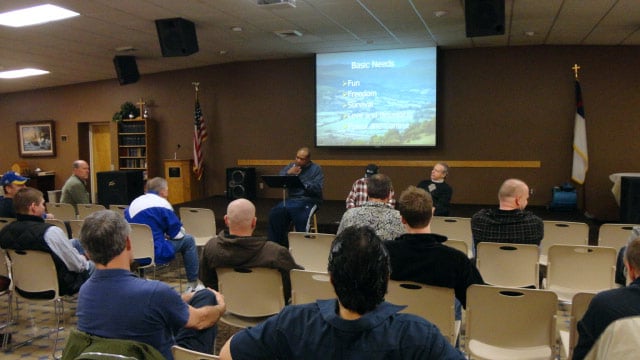
Jina: I typically don't share on too much of a deep level my own personal stuff with them, but I think that the one thing I can relate to the most with clients is fear. Recognizing how I was so fear-based -- everything in my life just keeps pointing back, all my problems were about fear. So we often talk about that in our group sessions, I like to show them how many times does it point back to fear, so that at least they can identify that and maybe recognize that from a small child, they've had some fear-based issues going on that just kind of snowballed into other things.
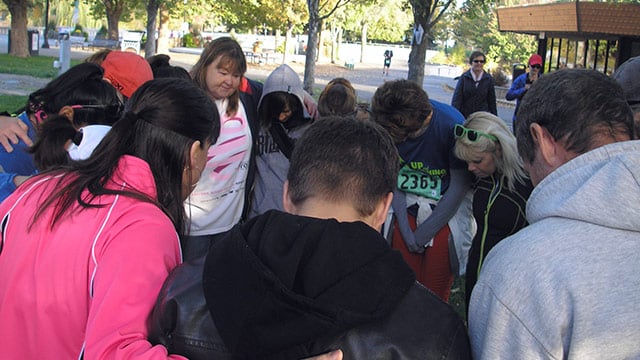
But when you look at the five basic needs – like power and control, love and belonging, fun, or freedom -- how many times some of those things that we're doing revolve around the need for those, and maybe the fear of not getting those or the fear of being out of control, the fear of being powerless, the fear of not having love or belonging, that tend to make their way into our recovery centers, that still cause problems for them even in the recovery environment. They all lead back, typically, to fear.
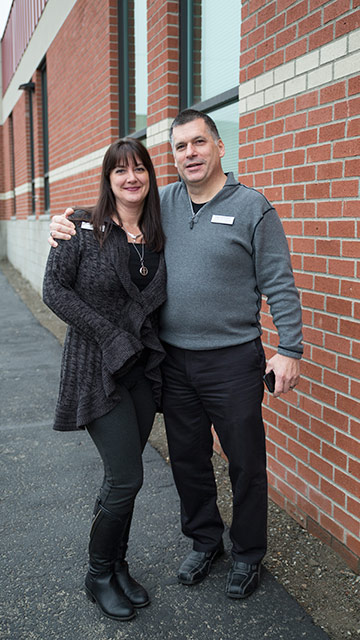 Lynn: You guys are both here at UGM all the time. When you're able to have your time off, what do you do to recharge your batteries?
Lynn: You guys are both here at UGM all the time. When you're able to have your time off, what do you do to recharge your batteries?
Mike: Well, we go to movies occasionally, if anything good's playing. In the spring and summer months, we were starting to do some hiking throughout Spokane.
Jina: I like to be down by the river, that's what always calls my name, and isn't it a blessing that I just walk a block away and look over the edge of the cliff from where I work, and there's the river right there.
And also just in quietness now. I have a strong draw for solitude because I'm working around people all day long, and so that's how I tend to recharge is just actually pulling myself away from that, and just in the quiet times I'm getting recharged.
And then there's other times we like to go to Christian concerts, and it's a whole different kind of getting recharged.
Lynn: Are there ways that you've learned from each other talking about your jobs, how to do your own job better?
Mike: Yeah, that was one of the things, initially, one of the reasons why I didn't want to work here. It was that old corporate thinking: nepotism, working in the same place as my wife, what happens if she gets disgruntled and leaves, where does that leave me or vice versa? But as it's turned out, it's really opened up my eyes to hear her talk about the things that she's going through and allowed me a vision into really how much more Aftercare can be.
We've had Aftercare for a while, but it's only consisted of the mentoring, and now we're looking at expanding that. And being able to see and hear and learn firsthand through some of the struggles that she's going through has really helped me to understand what the importance of this position is.
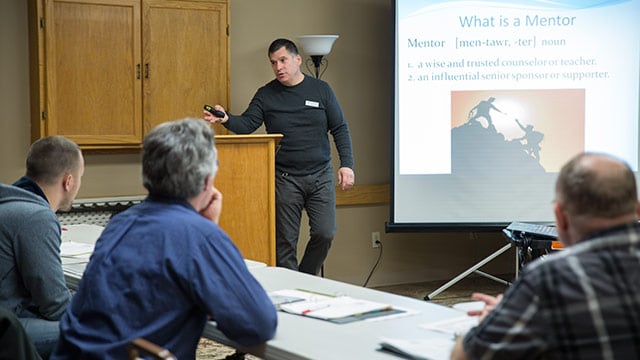
Jina: I think he sees directly a need that his department could meet for my department, and not just for mine but for the other two recovery departments. It just so happens that it's his department that can meet a lot of those needs that our residents are facing out there, like the lack of transitional, affordable, clean and sober housing.
And it's great to be able to partner with someone here who speaks the same language. We speak the language of recovery. We speak the language of our Christianity and faith, we speak the language of the same wants, needs and desires for the residents when they leave here.
Lynn: Have there been any struggles with the corporate working-at-the-same-place thing, like can't leave work behind?
Mike: We purposefully, with intention now -- I will not hook my computer up on a Friday night. I might do it on Sunday afternoon, but for the last couple weeks especially, I have not plugged that computer in until later on in the weekend. So it takes some intentionality. The “balanced” part of our goals for the ministry, our core values, is something that I recognize from being in the corporate world. I was a workaholic, I was someone who could very easily get caught up in that flow of not doing anything but work. I also know what the repercussions of that are, the harm it can do to a family or to a relationship, and so with intentionality I think we both try to spend that quality time with each other.
Lynn: Is there anything that you would want our donors or partners to know from your perspective on this ministry?
Mike: What the mission has to offer is just beyond anybody's comprehension unless they've come down and actually seen what we do here, experienced it, walked through the day room and talked to some of these guys going through the program. To sit there and watch somebody come into program, not be able to walk up a set of stairs because of their addiction, because their muscle tone is so bad that they can't walk up, and months later see that person hike up a hill.
It's just astounding, just a testament of what God can do in people's lives and what this ministry is all about. It's about restoring those people back to what God has planned for them to be. For me, it's seeing firsthand that change, that transformation of someone coming through the door for the first time and watching them walk out 18 months later and how different they look and the changes they've made, becoming that contributing member of society.
Jina: I would encourage our donors, if they haven't had a tour of all three recovery sites, to do that because then they have a chance to sit down and share a meal with a resident and actually see how their partnership is impacting the lives of these men and women and make it come to life, because it really is about transforming lives. It's really God's gift to us to be able to see how our partners give financially or in other ways and yet we really get to reap the rewards, the harvest on the other end.
If you'd like to schedule a tour of our shelters, begin by clicking below. 
.

2 min read
“Let us hold unswervingly to the hope we profess, for He Who promised is faithful…Jesus Christ is the same yesterday, today, and forever.” (Hebrews...

9 min read
To celebrate 75 years of serving the Inland Northwest, we are spending the year remembering our history and the faithfulness that built us and...

2 min read
In 2026, Union Gospel Mission Inland Northwest is approaching our 75th Anniversary! This is a milestone that invites gratitude and reflection, and...

One of the men in UGM's Recovery program wrote the following about what he mourns: “I mourn for the fact that my children have not had the father...
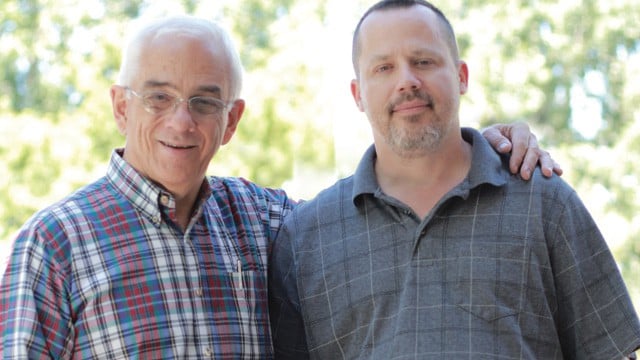
Shortly after moving to the Spokane Valley a year ago, Ken Carpenter, a retired pastor, visited the Union Gospel Mission Thrift Store. Noting the...
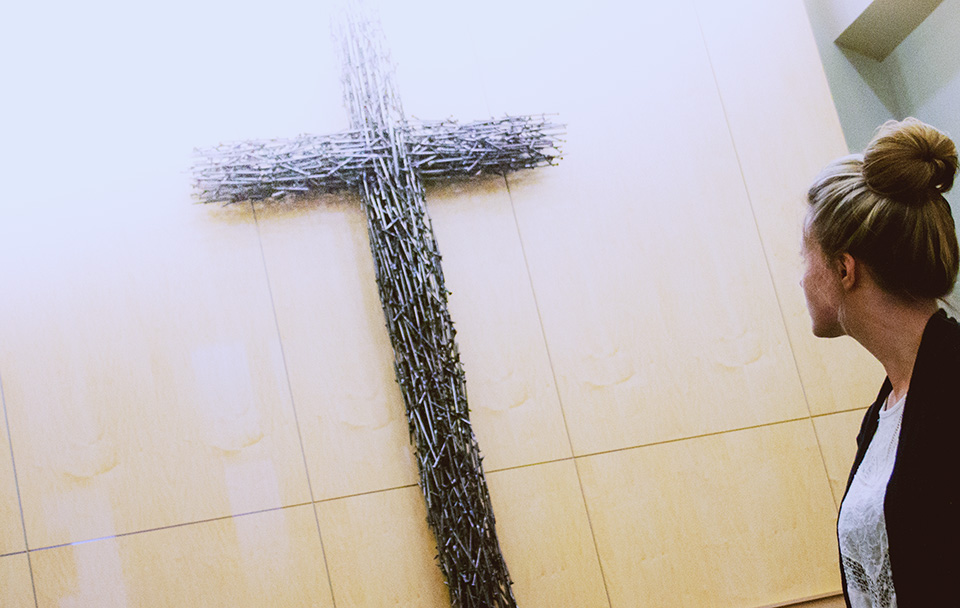
Written and performed by 2016 UGM LIFE Recovery alum Amanda Taylor.